If you find bloody discharge after your tooth has been removed, then do not be alarmed - this is the norm, as the blood vessels that feed the tooth are torn. However, there are times when the situation becomes dangerous. If the release of blood continues long enough, it will be necessary to stop this process. This can be done on your own using home medicine methods and available tools.
Causes of prolonged bleeding
There are many different causes that lead to prolonged bleeding from a wound. The most popular ones are:
- vascular injury;
- the occurrence of inflammation;
- stopping the work of a drug that had vasoconstrictor properties;
- low blood clotting;
- non-compliance with the instructions of the dentist.
Among the most common causes associated with the presence of diseases in the human body are cardiovascular. Most often, the blood cannot stop if the patient has high blood pressure, since the lumen of the injured vessels cannot be clogged.
Removing a tooth is considered an operation, so the presence of bloody discharge is not considered a pathology. The problem of prolonged bleeding occurs in almost every third case.
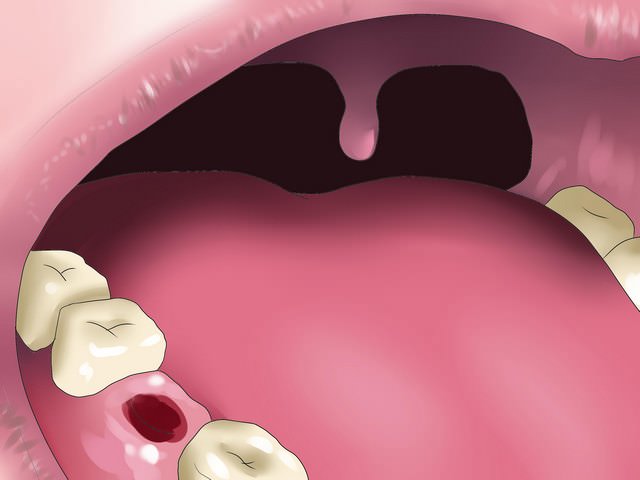
Your wound will heal many times longer in such cases if:
- a cyst was diagnosed before removal;
- damage to the dental crown has occurred;
- if your teeth have massive roots.
The rate of bleeding has not been established, but on average, the presence of discharge after the removal of wisdom teeth for three days is not a pathology.
To protect yourself from bleeding, carefully select the clinic where the operation will be performed. A qualified surgeon, after tooth extraction, applies a clean swab, which stays on the wound for about twenty minutes. The bleeding should stop as the vessels will be compressed with cotton wool. A blood clot or blood clot appears. It is worth remembering that within 24 hours after the operation, you must not rinse your mouth or perform mechanical effects on the wound. If you do not follow these basic rules, the blood clot can shift, leading to bleeding, which can be accompanied by inflammation and pain.
There can be many reasons for bleeding, you should not blame dentists right away. If bleeding is observed after the removal of a wisdom tooth, then it is worth remembering that their root system is quite complex, and sometimes it is injured.
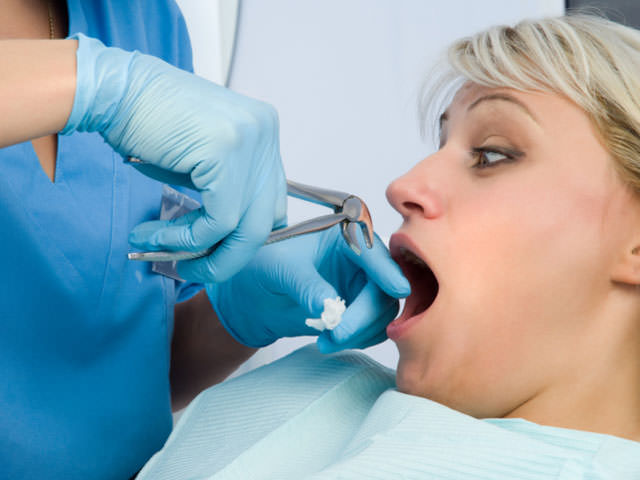
How to stop bleeding after tooth extraction?
If the gums are bleeding after tooth extraction while you are in dentistry, the surgeon will help you on the spot. If the discharge of blood began after you left the clinic, then there are some methods to prevent it at home.
In order to stop the release of blood, you yourself need to perform the following actions:
Take sterile cotton wool and place it on the wound. Squeeze your jaw so that the cotton is firmly attached to the wound.
- Keep your jaws closed for half an hour, do not open them. It is important that a blood clot appears in this half hour.
- After thirty minutes, you can relax your jaws a little, but you should not take out the cotton swab, so as not to inadvertently damage the blood clot.
- When you take out the cotton, pay attention to its contents. If it is not completely saturated with blood, then this is a sure sign that the secretion of blood has stopped.
- If, after the measures taken, the wound continues to emit blood, then treat it with cotton wool soaked in a 3% solution of hydrogen peroxide, and repeat the previous steps.
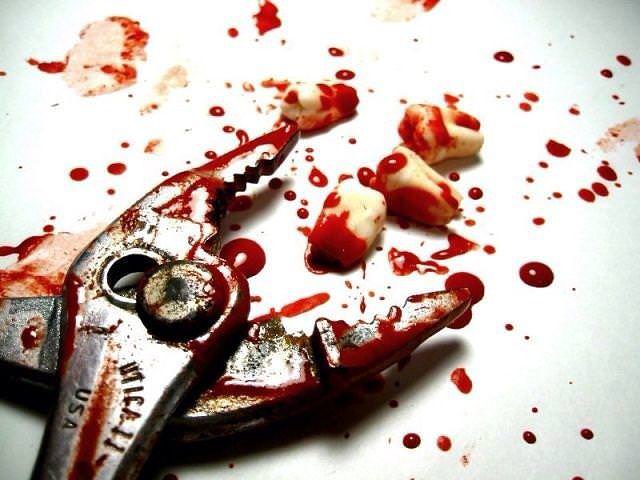
- It is recommended to apply ice to the cheek.
- Putting ice in the wound is prohibited, it is fraught with inflammation.
- If you're in pain, take a pill. Remember that the use of Aspirin and Ketanov is prohibited - these drugs increase blood flow.
Important! If, after the measures taken, you begin to experience general weakness, headache and nausea - consult a doctor immediately!
Precautionary measures
After the amputation of a tooth, the doctor is obliged to give you a number of tips on what to do in the first time after the operation. Liver tips include:
- do not smoke tobacco;
- do not eat hard, rough and hot food;
- do not rinse the mouth;
- do not take hot showers;
- do not play sports;
- do not brush your teeth for a day (in the place where the wound is);
- chewing gum is prohibited.
If you have diseases that are associated with poor blood clotting, then warn your doctor about this, as he will have to apply special sutures or apply a special hemostatic sponge after tooth extraction.
Important! Recurrent bleeding, which begins a couple of days after the tooth extraction operation, is due to the onset of inflammation. In these situations, home blood stopping techniques are not effective, and it is important to see a doctor as soon as possible.
Dentist help
After a tooth is removed, a blood clot forms in the wound. Its appearance is very important for the further course of events. It becomes an obstacle for bacteria that strive to get into the blood. In addition, tissue will appear under the clot, which will appear in the place where the roots once were. In order to prevent the occurrence of complications, the dentist who removed the tooth should be aware of the presence of various chronic diseases in you. This will help to take prompt and appropriate action if the blood cannot be stopped.
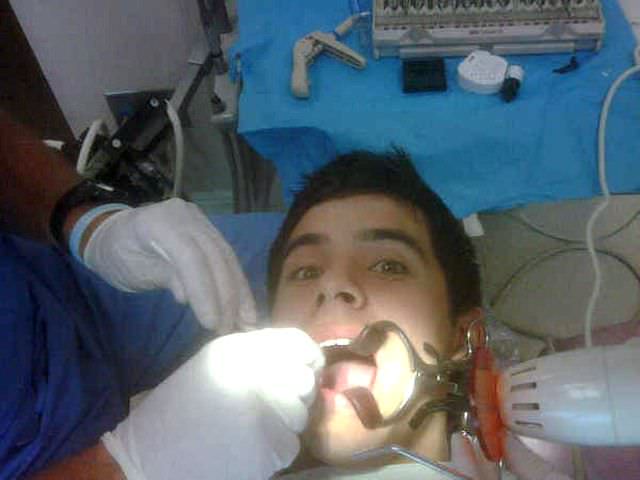
Complications while staying in a chair at the dentist arise in such cases as:
- the vessel is injured;
- the wound is injured;
- the gum is injured;
- the inter-root septum breaks;
- leukemia in a patient;
- other causes and diseases in which blood does not clot well;
- removal of a blood clot;
- the occurrence of inflammation;
- high blood pressure in the patient.
When the dentist is warned about the presence of diseases, then in most cases the measures taken are reduced to the use of pills. In addition, you must warn the dentist about the presence of allergies and intolerance to any medications.
If an injury is causing the bleeding, the dentist will apply ice to your cheek. If this vessel was large, then the doctor treats it with a hemostatic medication and sutures. If the bleeding comes from the bone area, then a special bone wax or self-absorbable gauze is used.
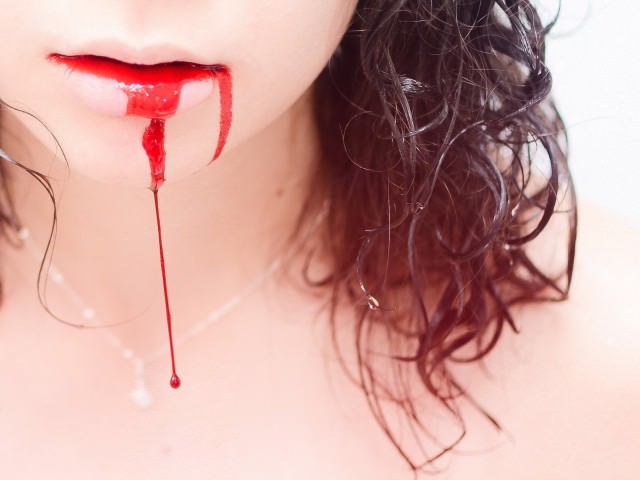
The vessel should be compressed, and the wound is closed with a tampon, which is moistened in a drug that stops blood. The swab will remain in the wound for about five more days. Extraction is done by a dentist.
If the medications do not cope with their task, the dentist sutures the wound. This will stop bleeding and accelerate the healing process. In rare situations, special medications are introduced that have the property of accelerating blood coagulation. If a complication has arisen due to inflammatory processes, then the wound is treated with an antiseptic, and the patient is prescribed antibiotics.
Preventive measures
There are various preventive measures to prevent bleeding. Some measures are taken by the doctor, some by the patient.
The measures taken by the doctor in order to prevent bleeding are to closely monitor the patient's health.
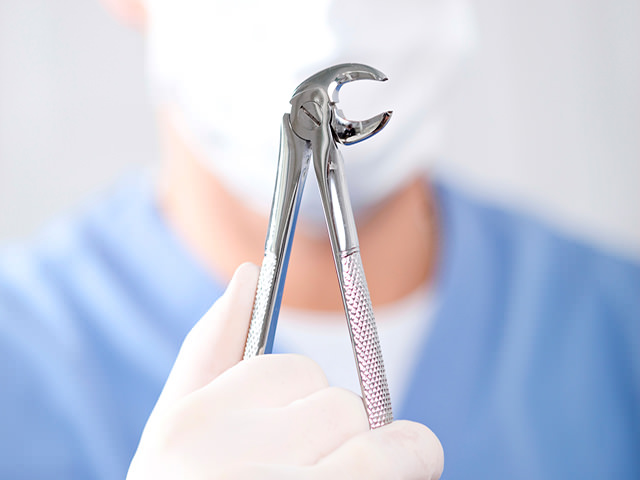
It is the responsibility of the physician to inquire about the patient's medical history. Reveal the presence of contraindications and chronic diseases. He can measure blood pressure. This knowledge will help the doctor decide on additional sutures. The same measures are taken if several teeth are removed at the same time or after the amputation of a molar.
The patient's preventive actions are to follow certain rules. The patient must limit himself in some "pleasures": you can not take a hot bath, smoke cigarettes, play sports.
You should also exclude all kinds of physical activity. People with high blood pressure should regularly measure it and monitor the data, do not forget to take pressure-reducing pills in a timely manner. All this will help to minimize the occurrence of situations that lead to profuse bleeding after a tooth is removed.
If, after taking all the necessary measures, with strict adherence to all the rules and advice that the doctor gave you, you still observe the release of blood in large quantities, if the bleeding is accompanied by migraines, dizziness, or feeling unwell, call an ambulance immediately!
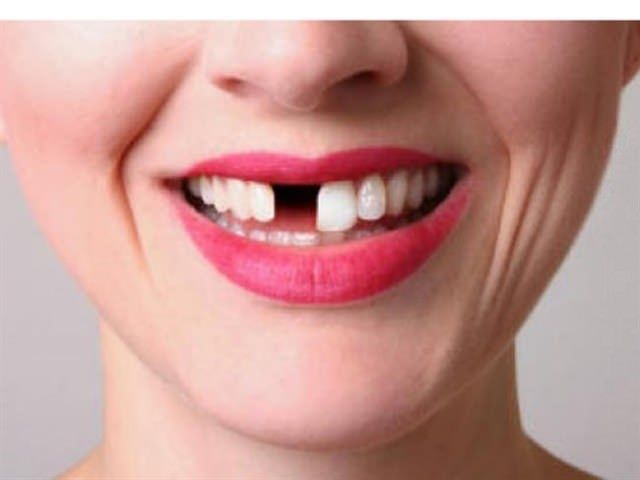
During the dialogue with the dispatcher, give information not only about bleeding, but also about other symptoms. This will help the visiting doctors to fully understand the situation. You should be sent to the surgical department where the wound will be stitched. After the doctors are convinced that the flow of blood begins to stop, you will be allowed to go home.
If you notice that you are spitting out whole blood clots, then it is better not to delay seeking help and call the doctors. This can be a 24-hour dentistry or an emergency room. In any case, you will be provided with a suture service. If you decide to go to a state hospital, it is advisable not to forget to take your passport, SNILS and compulsory medical insurance policy with you, since in the absence of these documents, difficulties may arise.
Now you know how to stop bleeding after tooth extraction. Follow all the rules and be healthy!





